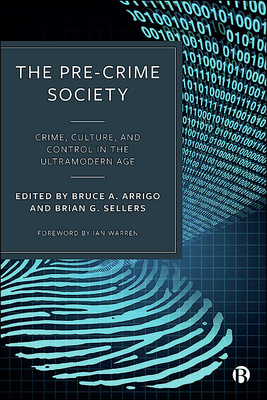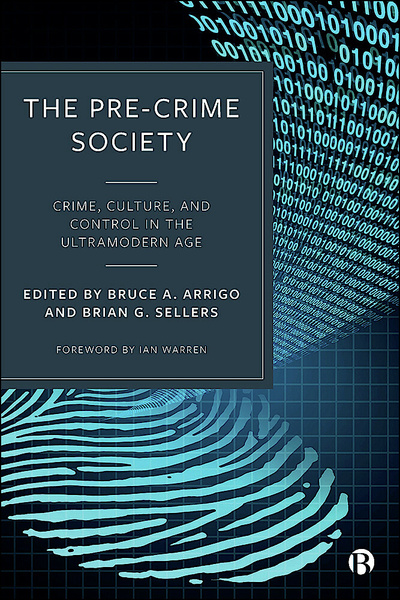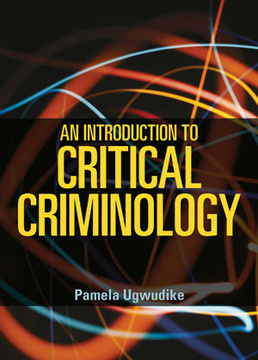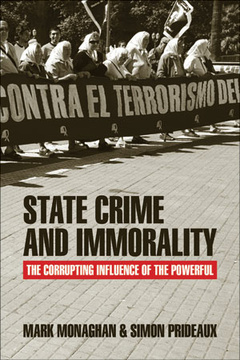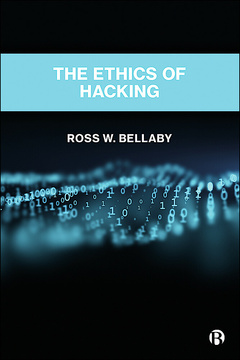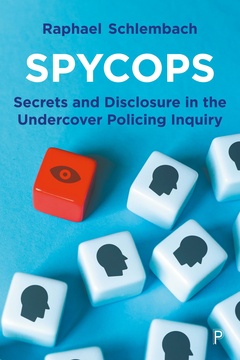The Pre-Crime Society
Crime, Culture and Control in the Ultramodern Age
Edited by Bruce Arrigo and Brian Sellers
Published
Jul 30, 2021Page count
534 pagesISBN
978-1529205251Dimensions
234 x 156 mmImprint
Bristol University PressPublished
Jul 30, 2021Page count
534 pagesISBN
978-1529205275Imprint
Bristol University PressPublished
Jul 30, 2021Page count
534 pagesISBN
978-1529205275Imprint
Bristol University PressWe now live in a pre-crime society, in which information technology strategies and techniques such as predictive policing, actuarial justice and surveillance penology are used to achieve hyper-securitization.
However, such securitization comes at a cost – the criminalization of everyday life is guaranteed, justice functions as an algorithmic industry and punishment is administered through dataveillance regimes.
This pioneering book explores relevant theories, developing technologies and institutional practices and explains how the pre-crime society operates in the ‘ultramodern’ age of digital reality construction. Reviewing pre-crime's cultural and political effects, the authors propose new directions in crime control policy.
“A wide-ranging, up-to-date and dynamic exploration of surveillance, power and social control in contemporary society. Essential reading for those interested in technology’s role in the responses to crime.” Majid Yar, Lancaster University
"This impressive collection of original essays is an essential critical guide to the transformations of crime control shaped by surveillance, data-analytics and the diverse technological innovations of the pre-crime society." Lucia Zedner, University of Oxford
Bruce A. Arrigo is Professor in the Department of Criminal Justice and Criminology at University of North Carolina at Charlotte.
Brian G. Sellers is Associate Professor of Criminology and Criminal Justice at Eastern Michigan University.
Foreword - Ian Warren
Introduction: The Ultramodern Age of Criminology, Control Societies, and 'Dividual' Justice Policy - Bruce Arrigo, Brian Sellers and Faith Butta
Part 1: Theories, Theorists and Theoretical Perspectives
1. The 'Risk' Society Thesis and the Culture(s) of Crime Control - Bruce Arrigo and Brian Sellers
2. The Security Society: On Power, Surveillance, and Punishments - Marc Schuilenburg
3. Pre-Crime and 'Control Society’: Mass Preventive Justice and the Jurisprudence of Safety - Pat O’Malley and Gavin Smith
4. The Negation of Innocence: Terrorism and the State of Exception - David Polizzi
Part 2: Institutions, Organizations and the Surveillance Industrial Complex
5. Visions of the Pre-Criminal Student: Reimagining School Digital Surveillance - Andrew Hope
6. Commodification of Suffering - Matthew Draper, Lisa Petot and Brett Breton
7. Surveillance, Substance Misuse and the Drug Use Industry - Aaron Pycroft
8. The Politics of Actuarial Justice and Risk Assessment - Andrew Day and Armon Tamatea
Part 3: Dataveillance, Governance and Policing Control Societies
9. Cameras and Police Dataveillance: A New Era in Policing - Janne Gaub and Marthinus Koen
10. Theorizing Surveillance in the Pre-Crime Society - Michael McCahill
11. Dataveillance and the Dividuated Self: The Everyday Digital Surveillance of Young People - Clare Southerton and Emmeline Taylor
12. The Bad Guys Are Everywhere, the Good Guys Are Somewhere - John Deukmedjian
Part 4: Systems of Surveillance, Discipline and the New Penology
13. Supermax Prison Isolation in Pre-Crime Society - Terry Kupers
14. Mass Monitoring: The Role of Big Data in Tracking Individuals Convicted of Sex Crimes - Kristen Budd and Christina Mancini
15. Towards Predictivity? Immediacy and Imminence in the Electronic Monitoring of Offenders ~ Mike Nellis
16. The Digital Technologies of Rehabilitation and Reentry - Bianca C. Reisdorf and Julia R. DeCook
Part 5: Globalizing Surveillance, Human Rights and (In)Security
17. Surveilling the Civil Death of the Criminal Class - Natalie Deckard
18. Big Data, Cyber Security and Liberty - Jin Ree Lee and Thomas Holt
19. Drone Justice: Kill, Surveil, Govern - Birgit Schippers
20. Global Surveillance: The Emerging Role of Radio Frequency Identification (RFID) Technology - Brian Sellers
Afterword: 'Pre-Crime' Technologies and the Myth of Race Neutrality - Pamela Ugwudike







